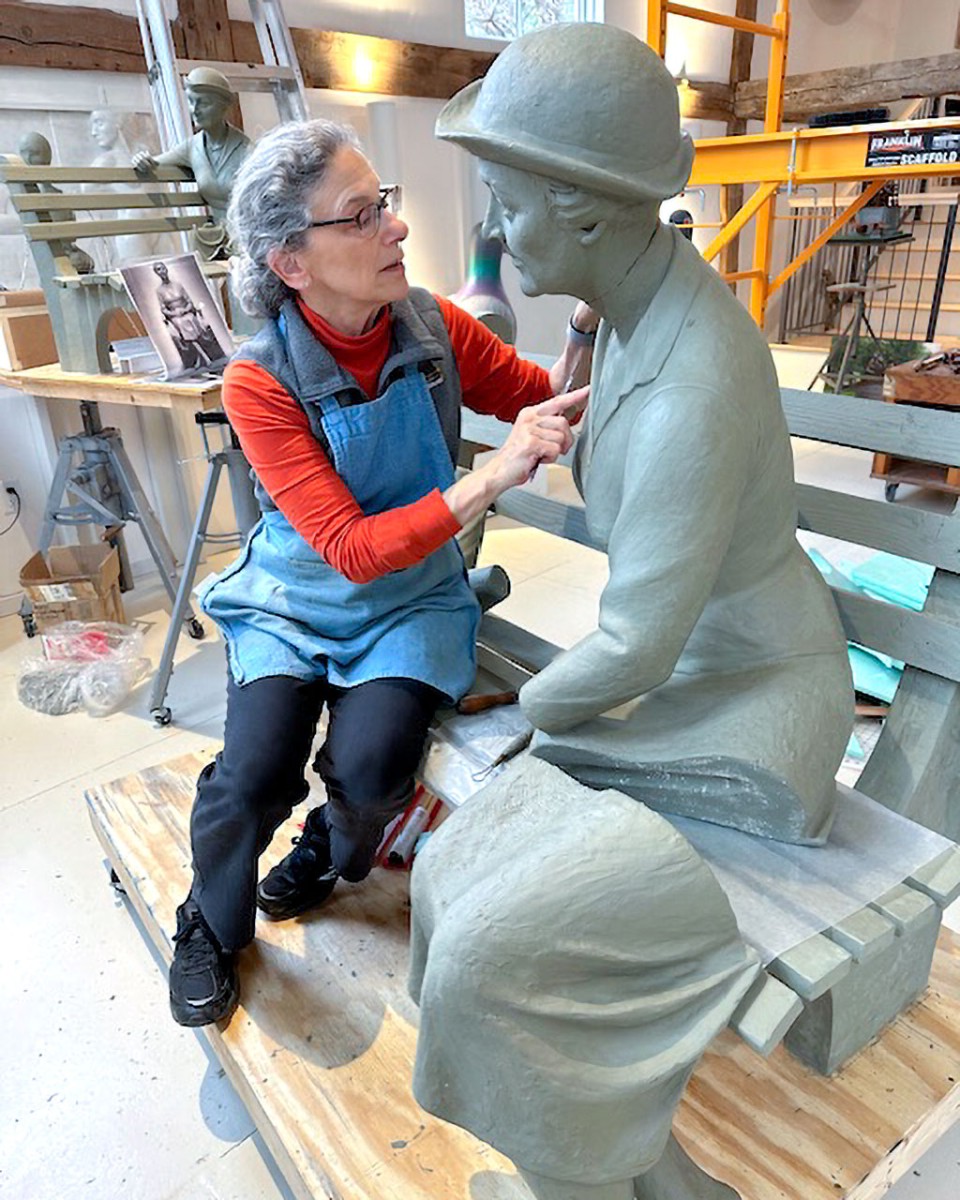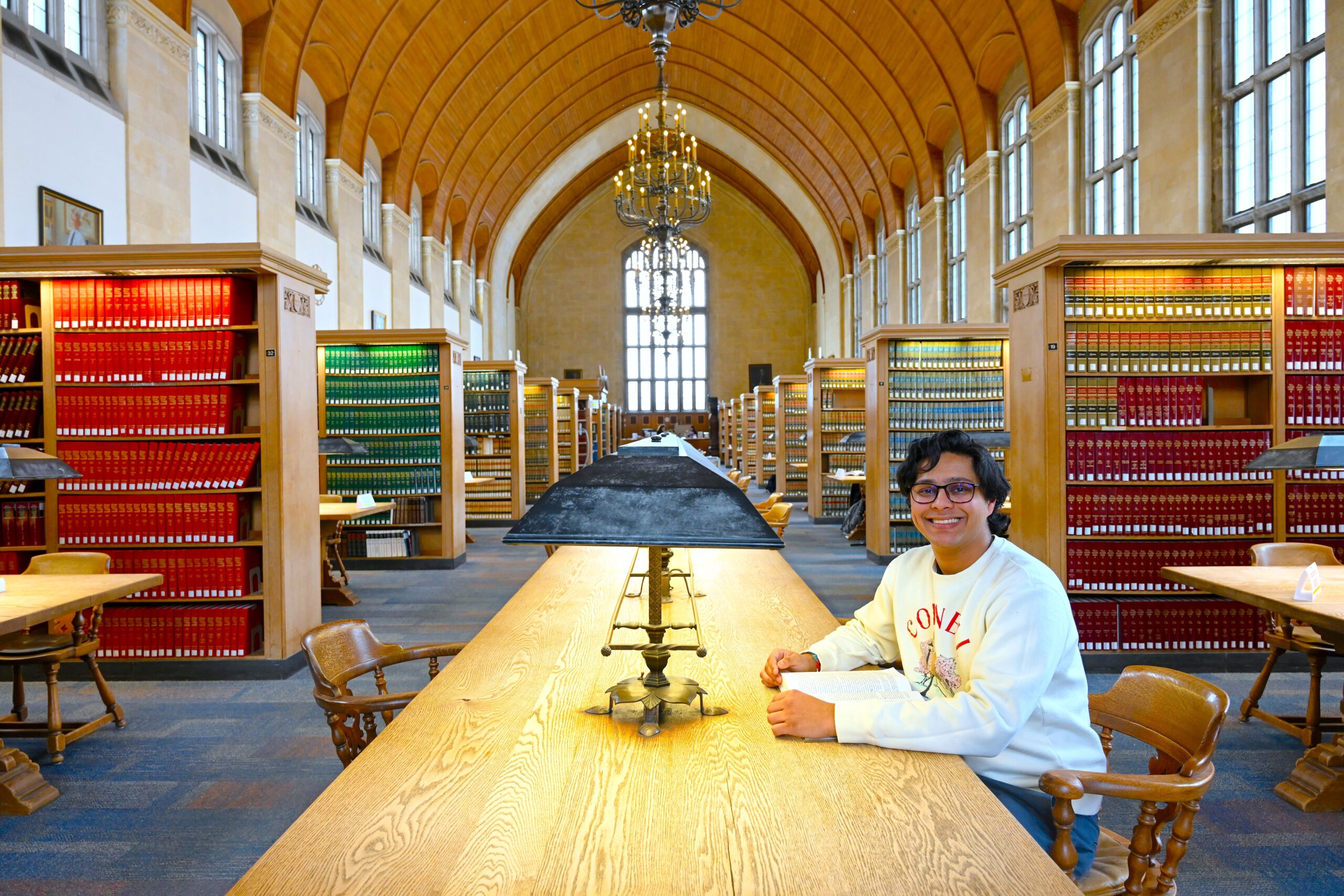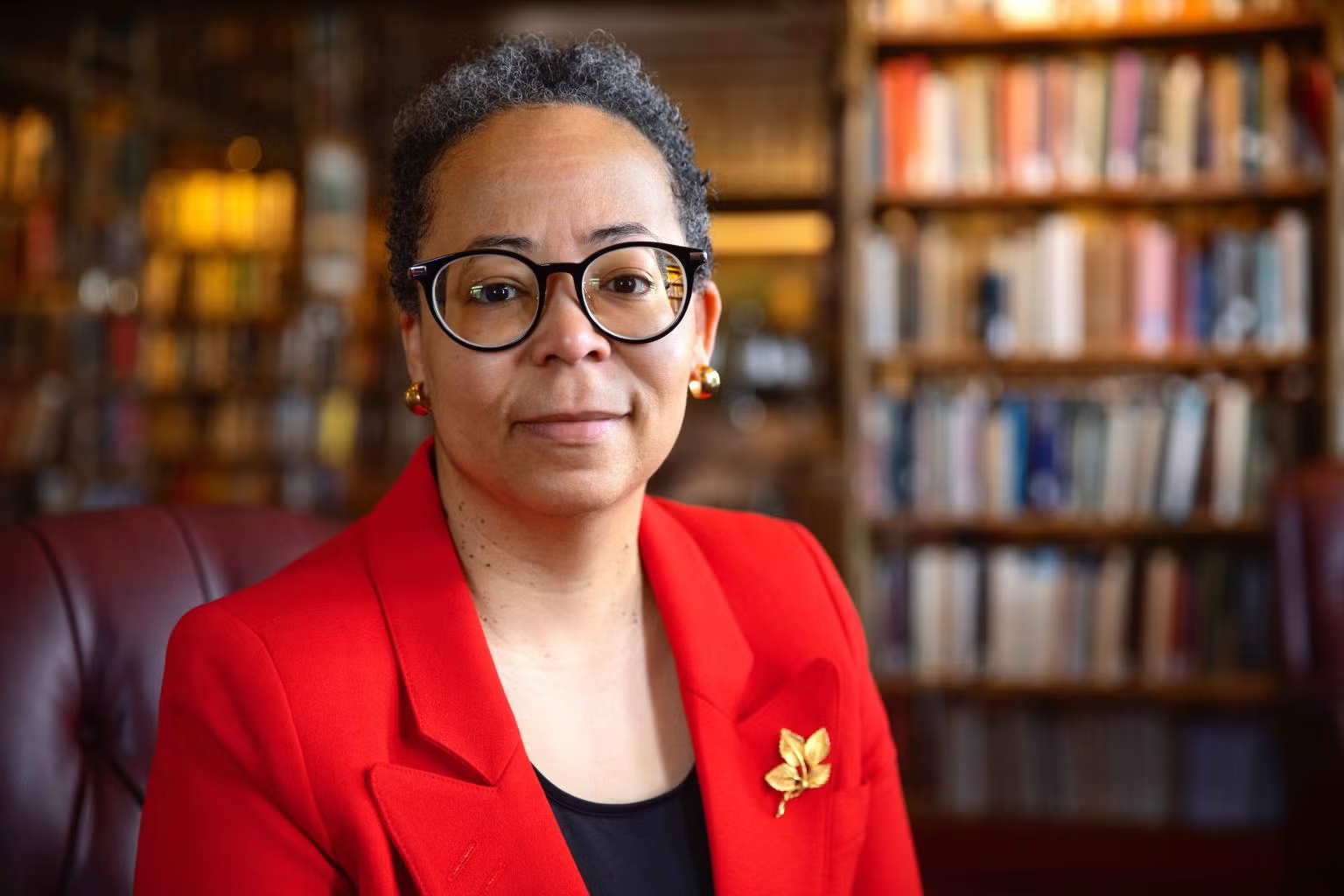
Sculptures honoring a former ILR School faculty member who established social policies that affect millions of Americans and a woman who devoted her life to educational equity and affordable housing in Ithaca will be unveiled Aug. 17 in downtown Ithaca.
Frances Perkins, who taught at ILR from 1957-65, served as secretary of labor in President Franklin D. Roosevelt’s administration from 1933-45 and was the architect of New Deal programs such as Social Security and unemployment insurance that continue to protect Americans.
Lucy Brown, a co-founder of Ithaca Neighborhood Housing Services, served on the Ithaca School Board, the Board of Public Works, the Ithaca Common Council and the Ithaca Urban Renewal Agency Board. She raised her children in Ithaca while working as an administrative staffer at Cornell. Brown, who moved to Atlanta in 2020 during the pandemic, will return to Ithaca for the unveiling.
Ceremonies begin at 10 a.m. at the Perkins statue, adjacent to the Breckenridge Place Apartments, 100 W. Seneca St. Attendees will then walk several blocks to the Brown sculpture, at the Henry St. John Apartments, 301 S. Geneva St. The public is invited and can RSVP here.
In 2021, an anonymous donor proposed the creation of statues of people who have contributed to the community’s well-being and who are underrepresented in public art. A statues steering committee was established and commissioned sculptor Meredith Bergmann, known for her Women’s Rights Pioneers Monument in Central Park, the Boston Women’s Memorial and the FDR Hope Memorial on Roosevelt Island, to create the life-size bronze statues.
Bergmann will speak at the event along with Brown and others, including Alex Colvin, Ph.D. ’99, ILR’s Kenneth F. Kahn ’69 Dean and Martin F. Scheinman ’75, M.S. ’76, Professor of Conflict Resolution.
“Frances Perkins was a key figure in American labor history,” Colvin said. “Her period teaching at ILR connects our school to the long arc of developing labor rights and social protections at work in America.”

The sculpture of Perkins, seated on an outdoor bench, shows her holding a list of programs she helped enact: Social Security, child labor laws, unemployment insurance, minimum wage and the 40-hour work week.
Brown is also seated on a bench, holding a pad and pencil, a nod to her custom of walking around Ithaca neighborhoods gathering ideas that she then put into action.
“I spent 86 years in my hometown community that I love very deeply,” Brown wrote in a biography that will be shared at the Aug. 17 event. “Most of my free time was spent serving the greater good in order to make a positive impact on this city and its people. I truly believe that it’s essential that people be involved in their neighborhoods, in their cities, states, regions and in the world.”
A QR code next to each statue links to narration about Brown and Perkins.
Perkins, the first woman to hold a cabinet post, was not a product of the labor movement, as were most labor secretaries. She began her career as a social worker at Hull House in Chicago, and later advised New York state leaders on worker health and safety issues before Roosevelt tapped her to join him in Washington, where her efforts made a difference for generations of workers.
“Frances Perkins believed that it was the duty of government to do what it could to relieve the suffering of its people. She devoted her life to improving the lives of others,” said ILR Professor George Boyer, a member of the statues steering committee.
Beginning in 1960, Perkins lived at Telluride House, just south of Libe Slope on what was then the eastern edge of the Cornell campus. Alumni who were housemates during her years there are planning to attend the Aug. 17 event.
An exhibit documenting Perkins’ life is open to the public and continues through 2024. It was curated by the Kheel Center for Labor-Management Documentation and Archives in Catherwood Library, part of Cornell University Library and located in the ILR School.
“Frances Perkins was ahead of her time, fighting for progressive causes like universal health care that are still hotly debated today,” said Steven Calco, Kheel Center interim assistant director. “The progressive legislation Perkins spearheaded has helped improve the lives of millions of Americans.”





